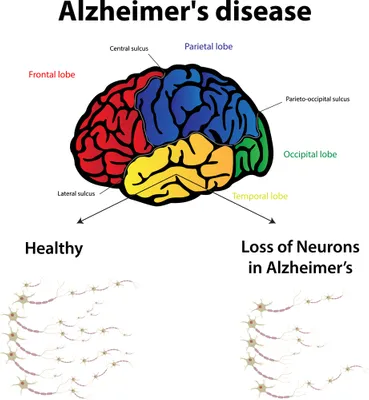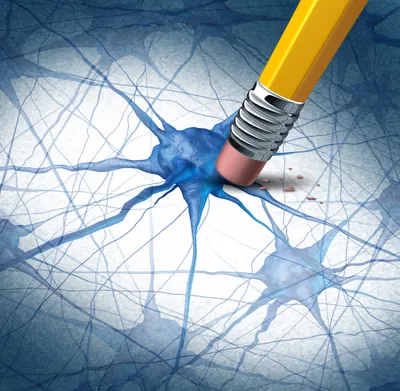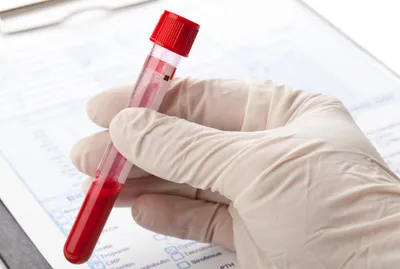Julianne Moore certainly earned her Golden Globe, SAG and Academy Award nominations for her heart-wrenching portrayal of Alice Howland, a woman diagnosed with early-onset Alzheimer’s at the age of 50 in the blockbuster Still Alice. The film follows Alice’s mental decline while educating the general public on a very rare form of the condition that strikes only 5-percent of the population under the age of 65-years-old.
Let’s step beyond the red carpet to examine the often-ignored symptoms of early-onset Alzheimer’s disease…
1. Not Just a Senior Status Condition
You probably think of old people when you hear the word Alzheimer’s Disease. Although rare, roughly 5-percent of the American population is diagnosed with early onset Alzheimer’s prior to age 65—years-old.
The majority of patients diagnosed with early-onset experience telltale symptoms in their 40s and 50s. And any patient diagnosed with the disease before the age of 65-years is considered an “early onset” or “younger onset” patient.
2. Symptoms Mirror Traditional Alzheimer’s
Psychiatry professors and Alzheimer’s disease researchers at Mount Sinai School of Medicine look for very similar symptoms in early-onset Alzheimer’s patients and traditional Alzheimer’s disease patients—such as misplacing objects, memory loss that affects daily life, decline in problem-solving skills, confusing times and places, difficulty performing normal daily tasks, forgetting words, trouble communicating and understanding others, poor judgment, mood swings, and social withdrawal.
However, because patients and their family members don’t often look for or recognize Alzheimer’s symptoms in younger patients, the disease is often diagnosed more slowly. Researchers at Mount Sinai School of Medicine approximate that it takes an average of 6-months to identify most early-onset patients or for patients and family to identify a health issue (i.e., memory loss) and bring it to the attention of a family doctor.
3. Difficult Diagnosis
It’s very common for us to shrug off many of the traditional symptoms of Alzheimer’s disease in a younger individual. For instance, you may blame forgetfulness on stress, the misplacing of objects on lack of sleep, and mood swings on a myriad of commonplace health issues.
Due to the fact that early-onset Alzheimer’s disease is quite rare in individuals under the age of 65, we’ll often excuse bouts of memory loss with preoccupation, stress, or fatigue rather than a legitimate cognitive issue. However, if a family history of early-onset Alzheimer’s does exist, the patient and family may be more able to recognize the signs faster.
4. Testing for Early-Onset Alzheimer’s
The rarity of the disease in patients under 65-years old may even cause your doctor to find other reasons for forgetfulness before they suspect early-onset Alzheimer’s, unless a family history of the disease is present. If you do have a history of early-onset Alzheimer’s a simple blood test can be conducted to pinpoint the gene mutation responsible. However, remember that the presence of the gene mutation does not necessarily determine you will develop the disease itself.
If your doctor suspects early-onset Alzheimer’s disease, they will conduct a series of testing above and beyond that of traditional Alzheimer’s patients—including imaging, blood, and other tests to clearly determine a cognitive problem while fully omitting the presence of a psychological or physical condition.
5. Specific Early-Onset Alzheimer’s Signs
Everyone suffers the occasional misplaced key or blank when it comes to remembering an acquaintance’s name at a party. However, early-onset Alzheimer’s patients go beyond that—often forgetting where they are, losing complete track of time, or forgetting how to complete routine daily tasks they’ve managed all of their lives.
Research from the Alzheimer’s Association points to the chronic nature of symptoms as the true red flag—for instance, you may forget to do routine tasks so persistently (i.e., how to get to work) that you subconsciously modify your routine (i.e., use GPS) even though you’ve worked at the same company for 10-years.
6. Life Impact of Early-Onset Alzheimer’s
An Alzheimer’s disease diagnosis is undoubtedly tragic for any family. However, in the case of early-onset patients in their 50s and 60s is that many still have children living at home, may be caring for their own aging parents, and the majority still rely on full time work for income.
In a younger patient, Alzheimer’s can interfere with the ability to work, care for, and be responsible for others and yourself. For instance, early-onset Alzheimer’s patients often have trouble understanding and retaining new information (i.e., job training, bank pin codes, computer passwords), which can be much more devastating in a patient still relied on by others for full-time work and care-giving.
7. Early-Onset Alzheimer’s Treatment
Although there is no cure for Alzheimer’s disease, even in younger patients, establishing drug treatment in the earliest stages can greatly stall the progression of the disease, which can help early-onset patients and families manage more successfully.
Experts from the National Institutes of Health’s Alzheimer’s Disease Education and Referral Center, recommend open communication with your doctor concerning ongoing Alzheimer’s research, clinical trails, and lifestyle changes (i.e., participating in mental activities like crosswords, language games, regular physical and social activities) to protect cognition for longer and slow memory decline.










